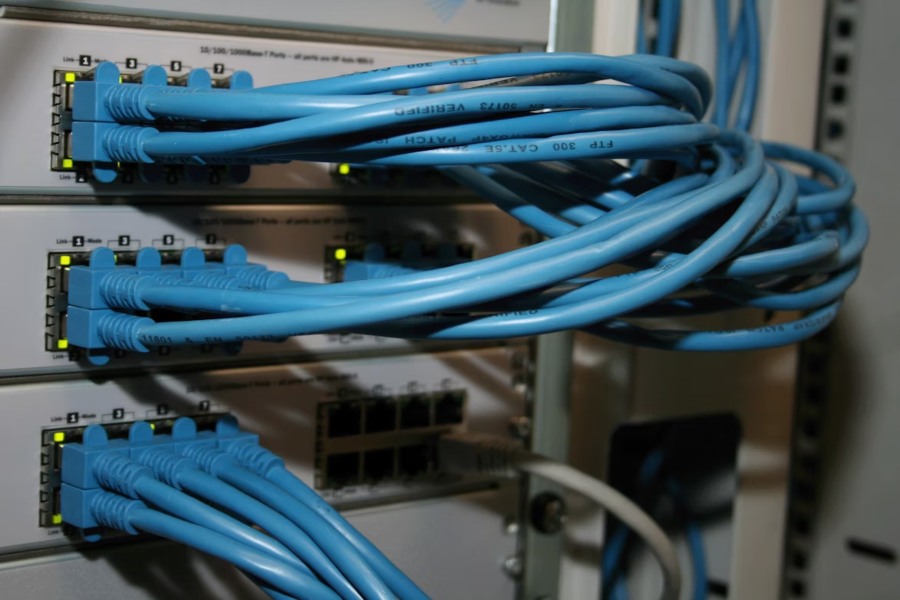
Every time you access the internet, your device uses an IP address—a unique identifier essential for communication between your device and the web. But beyond connectivity, IP addresses carry more power than most realize. One pressing question is: Do IP addresses show location? In today’s digital landscape, where data tracking, privacy concerns, and cybersecurity dominate, understanding what your IP address reveals about your whereabouts is vital.
Many users are unaware of how much location data can be extracted from their IP address. While it won’t pinpoint your exact street address like GPS, it can often approximate your city, region, or even your internet service provider’s data center. Businesses use this information for targeted ads, governments use it for regulation, and hackers might use it to exploit vulnerabilities. This article explores the full scope of this issue, offering a detailed, easy-to-understand breakdown for both tech-savvy and everyday internet users.
In this comprehensive guide, we’ll cover how IP addresses work, how they relate to location detection, how accurate they really are, who can see your location via IP, and how to mask or change it if needed. We’ll also dive into the privacy implications of IP-based tracking and what you can do to protect yourself.
Do IP Addresses Show Location? Yes, IP addresses can reveal your general location, such as your city or region. They don’t provide an exact home address, but websites and services can use them to determine where you are roughly located. This information is gathered using IP geolocation databases, which map IPs to physical areas based on ISP records and network infrastructure.
How Do IP Addresses Reveal Location Information?
The internet is built on protocols, and at its core lies the Internet Protocol (IP). Every device connected to the web is assigned an IP address by an internet service provider (ISP). This IP address acts like a virtual return address, letting websites know where to send data.
IP addresses are organized geographically by design. When ISPs assign IPs, they often group them by location to better manage traffic. So, if you’re browsing from Dallas, Texas, your IP will likely be part of a range linked to that region.
To determine location, websites and apps use geolocation services. These services compare your IP address against vast databases that associate IP blocks with physical locations. They pull data from registries, Wi-Fi triangulation, GPS info (on mobile), and ISP records. This combination creates a map that can usually narrow down your location to a city or district.
However, the accuracy of this location depends on several factors: whether you’re on mobile or desktop, if you’re using a VPN or proxy, and how updated the geolocation database is. While ISPs generally provide data tied to their infrastructure, it can still be off by several miles or even cities.
Most importantly, your IP address doesn’t include your exact home or apartment number. But it still gives others a decent idea of where you are in the world, and for marketers or surveillance groups, that’s often enough.
How Accurate Is IP Geolocation?
IP geolocation is a powerful tool, but it’s not foolproof. Its accuracy varies widely based on connection type, location, and the technology used.
What Determines IP Location Accuracy?
IP geolocation accuracy depends on:
The type of internet connection (mobile, broadband, satellite).
The location of the ISP’s routing center.
Use of VPNs or proxies.
Frequency of IP address updates in databases.
Country and Region Accuracy
Most IP geolocation services can determine the country with nearly 99% accuracy. For example, someone browsing from Japan will nearly always be identified as being in Japan.
City-Level Precision
City-level accuracy is trickier. Commercial geolocation databases like MaxMind or IP2Location claim 50-80% accuracy for identifying a user’s city. This is because the IP may trace back to the ISP hub, not the device’s actual location.
Real-World Examples
A user in San Francisco might be shown as being in Oakland if their ISP routes through there.
A mobile user might appear hundreds of miles away due to cellular routing towers.
Limitations of IP Tracking
Can’t detect street-level addresses.
Dependent on how ISPs assign blocks.
Vulnerable to obfuscation tools like VPNs.
Who Can See Your IP-Based Location?
Anyone connected to the internet can potentially access your IP-based location to some degree. While it won’t reveal your exact street address, your IP address can still expose your general location—usually your city or region. This information can be used in various ways depending on who is viewing it. Here’s a breakdown of the different entities that can see and use your IP location:
- Websites: Every time you visit a website, it logs your IP address. This allows the site to estimate your geographical location, customize content based on region, and monitor user activity.
- Advertisers: Digital marketers use your IP to tailor ads specific to your region or language. This is part of geo-targeting, where ads are delivered to audiences based on their location data.
- Hackers and Cybercriminals: Malicious actors may exploit your IP to attempt region-specific attacks, probe your network for vulnerabilities, or execute phishing scams that feel more localized and convincing.
- Internet Service Providers (ISPs): Your ISP assigns your IP and maintains detailed records. They can determine your precise location and are legally required to retain this data in many countries.
- Government Agencies: Law enforcement and surveillance agencies can request IP logs from ISPs during investigations, allowing them to trace online activities back to a physical location.
How to Hide or Change Your IP Address
To protect your privacy or access geo-restricted content, you might want to alter or hide your IP. Here are the most common methods:
- VPN (Virtual Private Network): Reroutes your connection through a secure server in a different location, masking your true IP.
- Proxy Server: Acts as an intermediary between your device and the internet, showing the proxy’s IP instead.
- Tor Network: An anonymizing tool that encrypts and bounces your traffic through multiple relays.
- Mobile Networks: Switching to a cellular network changes your IP to one managed by your mobile carrier.
- Public Wi-Fi: Temporarily changes your IP, but can be risky without encryption.
Using these tools can dramatically increase your privacy and bypass restrictions based on your IP location.
Do IP Addresses Always Reflect Your Real Location?
While IP addresses can suggest your general location, they don’t always reflect your exact whereabouts. Several factors can distort geolocation accuracy.
1. Not Always Accurate
Geolocation is imprecise because IPs are assigned in blocks. Sometimes, multiple cities share the same IP range, causing location overlap.
2. Dynamic IPs Change Regularly
Most ISPs assign dynamic IPs, meaning your address can change often. This inconsistency affects tracking accuracy.
3. Corporate or Institutional Networks
If you connect through a university, company, or government network, the IP may show their central office, not your exact spot.
3. Use of Anonymizing Tools
VPNs, proxies, and Tor significantly distort geolocation, making your virtual presence appear far from reality.
Implications of IP-Based Location Tracking
The use of IP-based location tracking has far-reaching effects, influencing everything from your online privacy to the type of content you can access. Here’s a closer look at its key implications:
Privacy Concerns
Knowing that your IP reveals your general location can be unsettling. Advertisers, surveillance entities, and malicious actors may exploit this data.
Content Restrictions
Streaming platforms, websites, and services use IP-based geofencing to block or serve content based on your region.
Cybersecurity
Attackers may use location data to craft localized phishing scams or target vulnerable regions.
Legal Ramifications
Law enforcement can subpoena ISPs to track user activity based on IP addresses for crimes, fraud, or cybersecurity violations.
Commercial and Marketing Use
Businesses tailor their ads, services, and offers based on IP data, which can lead to more personalized but also more invasive experiences.
Conclusion
So, do IP addresses show location? The answer is yes, but with limitations. While they can’t pinpoint your exact residence, they offer enough regional data to serve targeted content, track user behavior, and even aid in cyber investigations. For privacy-focused users, it’s critical to be aware of what your IP can reveal and how to manage that exposure.
Tools like VPNs and proxies allow users to regain some control over their digital footprint, but awareness is the first step. In an age where data is currency, knowing what your IP broadcasts about your location helps you navigate the web smarter and safer.
FAQs
Can someone track my exact location through my IP?
No, IP addresses do not reveal your precise home or street address. They only indicate a general area, like your city or region, based on your ISP’s network data.
How do websites know my location?
Websites detect your location by analyzing your IP address using geolocation databases, which estimate your area by matching your IP to known regions.
Can I hide my IP location?
Yes, you can hide or change your IP location by using a VPN, proxy server, or the Tor network, which masks your actual address and encrypts your connection.
Are mobile IP addresses more accurate?
Not usually. Mobile IPs often show the location of your carrier’s routing center, which could be far from your actual location, reducing geolocation accuracy.
Is it legal to mask your IP location?
Yes, it’s legal in most countries to use VPNs or proxies for privacy. However, some governments may restrict or monitor such usage due to regulatory concerns.





